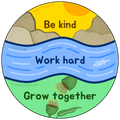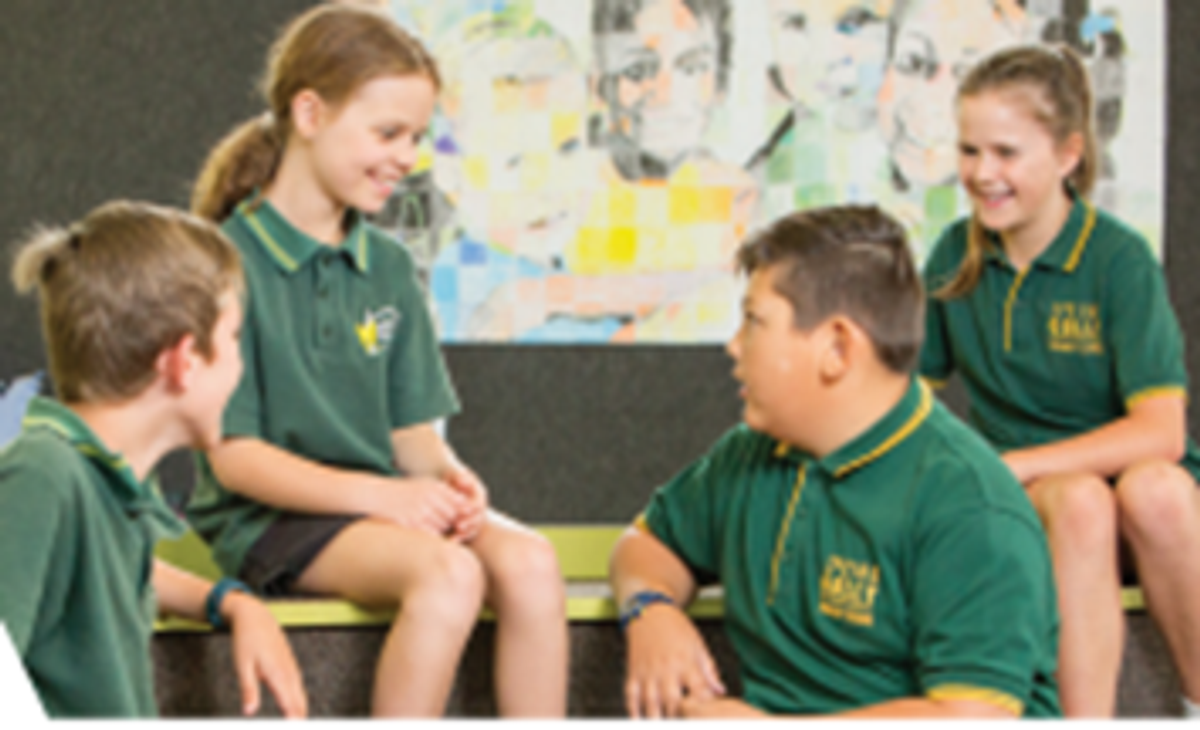IPS WELLBEING

Welcome
Welcome back to all our IPS families and a special welcome to our new families that have just joined our school community this year! For those who don't know, I have been appointed as the role of the Mental Health and Wellbeing Leader for IPS. The Mental Health in Primary Schools model focuses on improving teacher and school capacity to support students mental health and wellbeing in the longer term. The main objectives of this role is to provide a whole school approach focused on developing consistent mental health literacy, building upon school and staff capacity, supporting emerging needs and connecting with external allied health professionals and support services within our community. Alongside this, I will also be delivering our Resilience, Rights and Respectful Relationships curriculum once to a week. I am very passionate about this area within our education system and believe that for children to be engaged and successful in their educational journey, we must place importance and attention on their happiness, health and capacity to build resilience.
Each fortnight, I will be providing a small snippet about what's going on at IPS in our Mental Health and Wellbeing space, as well as providing helpful information to support families and the wider community.
Have a wonderful week everyone!
Jayne Lawson
Respectful Relationship at IPS
The Respectful Relationships initiative teaches our children how to build healthy relationships, resilience and confidence. It also supports school leaders, educators and our school communities to promote and model respect and equality.
ABOUT RESPECTFUL
RELATIONSHIPS
We all want our children to have an education that gives them the best start to a happy, healthy and prosperous life. Respectful Relationships supports students to develop the knowledge, understanding and skills to strengthen their sense of self, and build and manage safe and respectful relationships.
Respectful Relationships takes a whole-school approach, recognising that schools are a place of learning, a workplace and a key part of local communities. It embeds a culture of respect and equality across our entire school community, from our classrooms to staffrooms, sporting fields, fetes and social events.
This approach leads to positive change in students’ academic outcomes, their wellbeing, classroom behaviour, and relationships between teachers and students. We know that changes in attitudes and behaviours can be achieved when positive attitudes, behaviours and gender equality are lived across the school community.
Together, we can lead the way in creating genuine and lasting change so every child has the opportunity to achieve their full potential.
IN THE CLASSROOM
Respectful Relationships acknowledges that children of any age have challenges to overcome, teaching social and emotional skills appropriate to their age and level of maturity. It is being taught in all government and Catholic schools and many independent schools from Prep to Year 12, as a core component of the Victorian Curriculum.
In the primary years, Respectful Relationships focuses on treating everyone with respect and dignity. It is taught as part of the Health and Physical Education and Personal and Social Capability areas of the Victorian Curriculum.
The supporting Resilience, Rights & Respectful Relationships teaching and learning materials have been developed by world-leading experts from the University of Melbourne. These age-appropriate resources align to the Victorian Curriculum and include lesson plans and activities that help students learn and practise social skills and apply them in a positive way to learning, life and relationships.
The Resilience, Rights & Respectful Relationships resources cover eight topics for each year level.
The classroom program focuses on 8 key areas:
- TOPIC 1: EMOTIONAL LITERACY - The ability to understand, express using vocabulary and manage ourselves and other people’s emotions and respond appropriately to these emotions.
- TOPIC 2: PERSONAL STRENGTHS - Students need to develop a vocabulary to help them recognise and understand strengths and positive qualities in themselves and others. They identify desired strengths in others and ones they need to develop when life presents challenging situations
- TOPIC 3: POSITIVE COPING - Provide opportunities for students to identify and discuss different types of coping strategies and extend their repertoire of positive coping strategies. Positive self-talk is a key strategy for coping with negative thoughts, emotions and events. It is associated with greater persistence in the face of challenge, and can be learnt or strengthened through practice.
- TOPIC 4: PROBLEM SOLVING - The classroom program provides a number of learning activities to develop students’ problem-solving skills. The activities in the program assist students to develop their critical and creative thinking skills, and to apply them to scenarios exploring personal, social and ethical dilemmas.
- TOPIC 5: STRESS MANAGEMENT - teaching positive approaches to challenges that arise. The activities focus on the ways in which self-calming strategies can be used to manage stressful situations.
- TOPIC 6: HELP-SEEKING – Help Seeking is designed to help students discuss the importance of seeking help and providing peer support when dealing with problems that are too big to solve alone. Scenario-based activities help students identify situations in which help should be sought, identify trusted sources of help, and practice seeking help from peers and adults.
- TOPIC 7: GENDER AND IDENTITY - Students learn about key issues relating to human rights and gender identity, and focus on the importance of respect within relationships. There are age-appropriate learning activities that assist students to understand and critique the influence of gender norms on attitudes and behaviours.
- TOPIC 8: POSITIVE GENDER RELATIONSHIPS - This teaches students to build and set boundaries in positive relationships between and within genders, and the importance of accepting difference and diversity. It plays an active role within the prevention of gender-based violence.
You can find more information about Respectful Relationships by following this link: https://www.vic.gov.au/respectful-relationships
| Week 3 Topic | Week 4 Topic | |
|---|---|---|
| F/1 | What do emotions look like? | What do emotion sound like? |
| 2/3 | What do emotions look like? | Emotional Triggers |
| 4/5/6 | What do emotions look like? | Recognising positive, negative & mixed emo |

